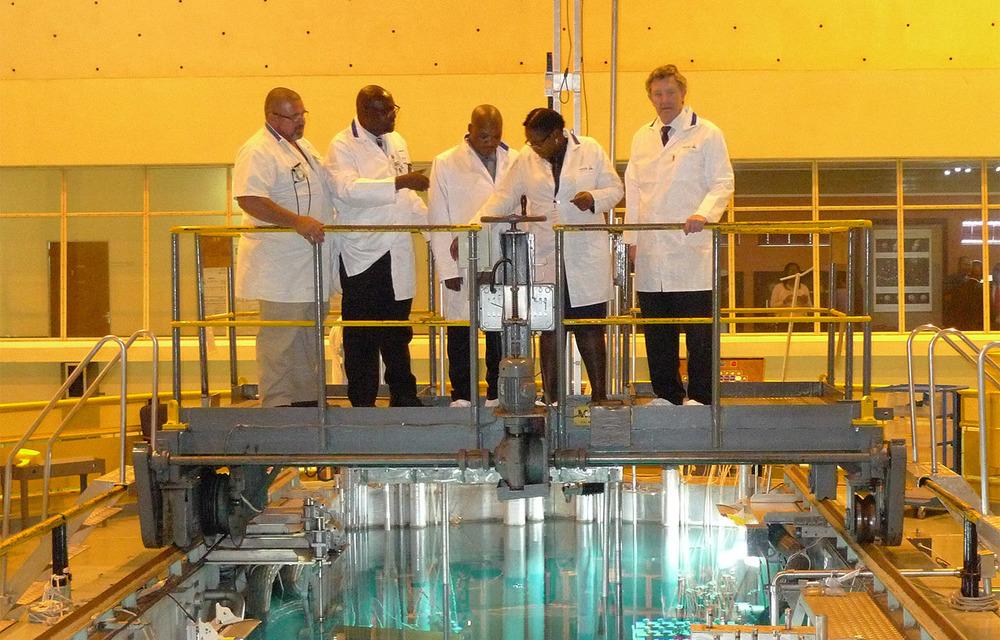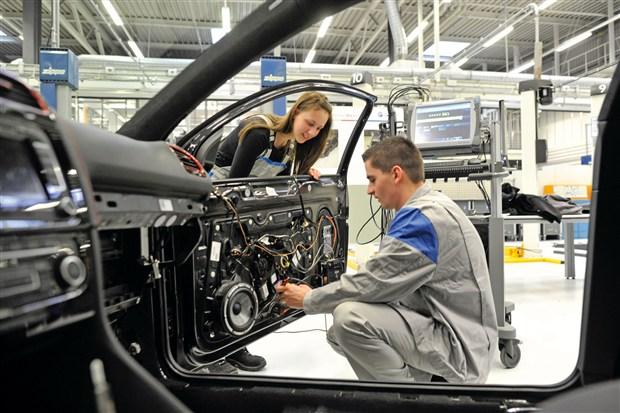Explore Our Bill Payment Services:

- Salary And Allowance
- Engineers Salary
- South Africa
Salary And Allowance Structure Of Control Engineering In South Africa
Control engineering, sometimes called automation or systems engineering, is one of the most exciting and impactful branches of engineering today. It involves applying mathematical modeling, system theory, and design principles to manage, automate, and optimize processes. From manufacturing and robotics to mining, energy, transport, and aerospace, control engineers are the backbone of modern industrial systems.
In South Africa, control engineers play critical roles in industries that are central to the economy, such as mining, petrochemicals, energy, and advanced manufacturing. They ensure processes are efficient, safe, and reliable while integrating advanced digital and automated technologies into existing infrastructure.
The demand for skilled professionals in this field is strong and continues to grow as industries shift toward greater automation. This demand is reflected in competitive salary packages and attractive allowances, making control engineering not only a challenging but also a financially rewarding career choice.
National Salary Overview and Experience Breakdown
Average Salary
As of 2025, the average annual salary for a control engineer in South Africa is around R 667,000, which translates to approximately R 55,600 per month. However, salaries are not uniform across the country. Engineers working in major hubs such as Randburg, Pretoria, Johannesburg North, and Sandton tend to earn more, sometimes exceeding R 900,000 annually, while those in smaller towns or public-sector roles may earn slightly less.
In government-linked positions, such as with provincial administrations, salaries average around R 632,000 per year, but this figure can range from as low as R 269,000 for entry-level positions to more than R 1.14 million for senior engineers with advanced responsibilities.
Salary Progression by Experience
Like most engineering disciplines, salaries in control engineering increase with years of experience. A typical career progression looks like this:
-
0–2 years of experience: ~R 195,000/year
-
2–5 years: ~R 264,000/year
-
5–10 years: ~R 342,000/year
-
10–15 years: ~R 417,000/year
-
15–20 years: ~R 455,000/year
-
20+ years: ~R 478,000/year
This trajectory demonstrates a steep rise in the first decade of work, with increases slowing but still continuing as engineers gain seniority.
Control Systems Engineering Salary
Control systems engineers, who specialize in designing automation logic and developing process control systems, often command similar or slightly higher salaries due to their niche expertise. On average:
-
0–2 years: ~R 197,000/year
-
2–5 years: ~R 250,000/year
-
5–10 years: ~R 346,000/year
-
10–15 years: ~R 431,000/year
-
15–20 years: ~R 459,000/year
-
20+ years: ~R 491,000/year
This shows that control systems engineers enjoy steady financial growth, especially in industries that rely heavily on automation.
Specialized Roles and Industry Employers
Control and Instrumentation Engineers
One of the highest-paying career paths within control engineering is control and instrumentation (C&I). Engineers in this role focus on designing and maintaining instruments and systems used to monitor and control industrial processes. Large companies in the petrochemical and mining sectors typically offer salaries ranging from R 503,000 to R 803,000 per year, inclusive of base pay and performance-related bonuses.
Process Control Engineers
Process control engineers work within industries such as chemicals, food processing, pharmaceuticals, and energy. Their salaries generally range from R 21,000 to R 38,000 per month, with a median of around R 28,000 per month. Annual earnings for mid-level process control engineers typically fall between R 300,000 and R 460,000, with higher figures for those in senior roles.
Factors Influencing Salary and Compensation
Several factors determine how much a control engineer earns in South Africa.
Role and Industry
Specialized roles such as control and instrumentation engineering or process control engineering tend to pay more, particularly in sectors like petrochemicals, oil and gas, and mining. Global firms and large South African industrial employers usually offer better compensation packages than smaller local firms.
Experience and Skills
Early career stages show rapid salary growth as young engineers gain experience. Advanced skills such as programmable logic controller (PLC) programming, supervisory control and data acquisition (SCADA) systems, robotics integration, and systems optimization further increase market value.
Location
Geographic location plays a significant role. Engineers in Gauteng (Johannesburg, Randburg, Sandton, Pretoria) and Cape Town generally earn more than their counterparts in other provinces due to higher demand, industrial concentration, and the elevated cost of living in these areas.
Employer Type
Public-sector employers usually provide steady but narrower salary bands, whereas private-sector industries often offer higher salaries coupled with allowances and performance-related bonuses.
Allowances, Bonuses, and Benefits
In addition to base salary, control engineers often enjoy various allowances and benefits:
-
Performance Bonuses: Typically ranging between 5–10% of annual salary, depending on individual and company performance.
-
Annual Salary Increases: Around 8–10% increases are common across engineering roles in South Africa.
-
Education Premiums: Higher degrees such as master’s or doctorates can raise starting salaries by R 10,000–R 20,000 per month.
-
Professional Registration (PrEng): Registered engineers often receive better pay packages and leadership opportunities.
-
Location-Based Allowances: Housing or relocation allowances are sometimes offered to engineers posted in high-cost cities.
-
Other Benefits: Many companies include medical aid, pension contributions, travel allowances, and a 13th cheque (annual bonus) in their compensation packages.
Real-World Insights from Engineers
Anecdotal evidence from South African engineers helps illustrate the real salary landscape:
-
A young graduate in controls engineering reported earning around R 20,000 per month, while mid-level engineers earned around R 30,000 and senior engineers R 40,000+ net. Graduates with exceptional grades started at R 35,000, while those with master’s or doctoral qualifications commanded R 45,000 to R 60,000 per month.
-
Another engineer described how structuring salaries into allowances, such as travel and subsistence, significantly improved net pay since certain allowances were not taxed. Although some of these structures have been restricted in recent years, they highlight the importance of understanding salary composition and negotiating strategically.
Salary Structure Summary
| Role / Level | Monthly Estimate | Annual Estimate | Notes |
|---|---|---|---|
| Graduate / Entry (0–2 yrs) | ~R 16k – R 25k | R 195k – R 300k | Varies by employer and additional pay |
| Mid (2–5 yrs) | ~R 22k – R 30k | R 264k – R 360k | Reflects early growth |
| Experienced (5–10 yrs) | ~R 28k – R 35k | R 342k – R 420k | Often includes bonuses |
| Senior (10–15 yrs) | ~R 35k – R 43k | R 420k – R 510k | Specialized roles |
| Very Senior (15–20 yrs) | ~R 38k – R 45k | R 455k – R 540k | Deep domain expertise |
| Veteran (20+ yrs) | ~R 40k – R 50k | R 478k – R 600k+ | Leadership roles, allowances, high responsibility |
| Control & Instrumentation (specialized) | — | R 503k – R 803k | Base + bonuses |
| Process Control Engineer (mid careers) | R 25k – R 38k | R 300k – R 460k | Includes actual anecdotal data |
Tips for Aspiring Control Engineers
-
Pursue Specialized Education: Advanced qualifications can open higher-paying roles, especially in control systems, automation, or instrumentation.
-
Target Lucrative Industries: Petrochemicals, mining, and energy generally offer the most attractive packages.
-
Leverage Geographic Advantage: Working in Gauteng or Cape Town often comes with higher pay, but weigh this against the cost of living.
-
Negotiate Compensation Wisely: Understanding how to structure allowances and benefits can significantly boost take-home pay.
-
Obtain Professional Registration (PrEng): This credential not only enhances credibility but also improves earning potential.
-
Stay Industry-Connected: Networking with engineering communities provides insights into current pay trends and opportunities.
Conclusion
Control engineering is an essential and highly rewarding career in South Africa. Entry-level salaries typically range between R 200,000 and R 300,000 annually, with significant growth opportunities that can push earnings into the R 400,000 to R 500,000 range as engineers gain experience. Senior and specialized roles, especially in instrumentation and process control, can command packages of R 600,000 to over R 800,000 annually.
With attractive salaries, bonuses, and allowances, along with opportunities in high-demand industries, control engineering offers not only financial security but also a chance to contribute to South Africa’s industrial and technological progress. For those who combine education, experience, and strategic career moves, the profession remains both intellectually fulfilling and financially rewarding.









